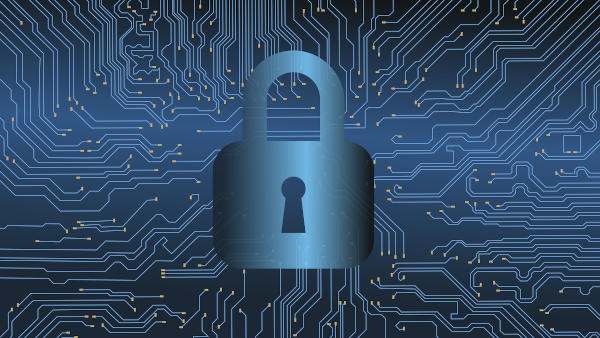Understanding cybersecurity best practices is essential to protect sensitive information in such fields. Those who deal with enormous amounts of data coming to them from multiple sources are at the risk of various attacks, including people in the real estate industry. Following cybersecurity best practices can greatly reduce these risks.
In fact, cybersecurity has become a major cause of concern in the real estate industry. Recently, various cyber network incidents were reported, including a smart meter hack. In this situation, hackers gained access to information from an entire building and free wifi in the mall to access credit card information and other confidential information.
The real estate industry is no exception, but it is time to address the matters of cybersecurity. Hackers ask for ransom and claim confidential information will be shared. Frequently these ransoms are paid to bring the situation to closure. However this plays out, it is a drain on company resources and a threat to an owner’s credibility. Learn what you can do to prevent this from happening in your organization by adopting cybersecurity best practices.
Prevention is the Best Medicine for Cybersecurity in Real Estate
To prevent cyberattacks, we suggest you adopt the following best practices to protect confidential real estate information from the clutches of the hackers:
- Focus on the vulnerabilities within and outside your organization: The first step is to include a security audit within your process. It should apply to the internal processes and the areas where data is obtained and distributed. Most of the hackers get sensitive information from the trash. Just as you shred the unwanted information in your physical trash bin, make sure to delete unwanted files from your system. Avoid keeping your credit card unattended on the table or where people have easy access.
- Mind your third parties: Look at the organizations you interact with daily. If you exchange information with them, ask them what extra measures they are using to keep your data safe. If the other party is not taking precautions, that is a red flag for you. The transfer method used by both parties should be secure. Enable read-only mode while sharing documents with the other party. Try not to store any information in the cell phone as they are more vulnerable to cyber-attacks.
- Educate your employees: Educating your employees about cybersecurity best practices can save the company from a huge loss. Employees should take strict measures to protect sensitive information from the outside. Access to documents should only be granted to those responsible for project completion. Access to systems and documents should be reviewed regularly to remove unnecessary access and users.
Don’t Forget About Email and Passwords
- Protect your email account: Hackers can gain access to critical information by attacking the email providers. To prevent such incidents from taking place, one must keep personal and professional accounts separate. Look closely when receiving an email from an unknown source, particularly if it has an attachment. Encrypt sensitive information using passwords.
- Change your passwords from time to time: One of the best ways to keep your sensitive information secure is to change passwords frequently. The password strength should be strong, and you should use a password system to manage your passwords. Adhering to cybersecurity best practices is vital in this respect.
- Scrub your social media accounts: Nearly everyone has a social media account these days. These accounts make you vulnerable to cybersecurity threats. A lot of information about your personal life is available on your social media accounts. Be careful what you share on social media. Report any scam that might come from a post, message, or through a friend request.
Keep in mind, any personal cyber-attacks on your social media accounts should also be reported to your local cybersecurity network.
Technology to Implement
- Use a secure web gateway: It’s easy for hackers to get information such as banking credentials to commit financial fraud or perform a phishing attack to obtain email information. A web security gateway can block such attacks even if your computer remains unattended for a long time. A secure web gateway also performs URL filtering, inspects traffic, and looks for malicious code in real-time.
- Install antivirus software: Install an antivirus system to ensure that your data remains protected from getting into the wrong hands. Run antivirus software on your entire system. A quality antivirus software performs updates periodically, preventing new viruses from entering the system. Choose a software program that matches your budget instead. This is one of the essential cybersecurity best practices.
Develop Plans
- Have a backup plan: Malwares and viruses sometimes still find a way to enter your computer system and network. Create a backup plan. You can also use a cloud service to back up your data effortlessly on a regular basis. Or, use an external hard drive to store and retrieve your data.
- Research basics of computer security: Computer security begins with users. If you have adequate information about computer security, it will take you a long way in protecting your valuable data. Periodically check for updates on the needs and trends on cybersecurity and integrate the necessary technology into your system. Stay current with the latest methods to keep your data secure and prevent a data hack by implementing cybersecurity best practices.
Finally, educating yourself, your employees, and staying informed is the key to the prevention of cybersecurity concerns. In case you get in trouble, seek the help of your local cyber crime department. To address security in your office, check out this article to address those security concerns.

Author Bio: Andrew Starr is a Cyber Security Professional with over 25 years in the Industry. As a Certified Information Systems Security Profession (CISSP), he is passionate about helping business secure their systems and networks by implementing cybersecurity best practices. Over the years, he has had the privilege to work with clients worldwide, including household names like Barbour and Unilever to the Metropolitan Police.
He is currently working with Just Cyber Security and working with leading cybersecurity solution providers across the globe.






